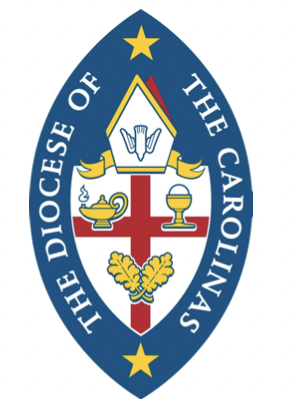One Size Doesn’t Fit All: Multicultural Church Planting in the Carolinas
/While many denominations are maintaining the status quo, the Anglican Church in North America is committed to starting new churches to reach the nearly 130 million unchurched people. Through this dedication, the ACNA has begun a movement that is sweeping North America.
With over 337 languages, the United States has become one of the most multicultural and multilingual nations on earth. To meet the challenge, the Anglican church has embraced a broad diversity of individuals who are carrying out the church planting mission. Through this diversity, one can easily see that one size does not fit all and one church cannot win all. Embracing diversity is the only way to reach communities for Christ. We need diverse Anglican churches so that we will be able to reach people who live in urban, suburban, and rural communities.
Multicultural Church Planting in the Carolinas
Fr. Joshua Gilliam is a wonderful example of the growing diversity and mission in the Anglican Church in North America. In the most unlikely of places, the Lord is using Fr. Joshua to plant two very diverse Anglican churches in Concord, North Carolina.
Joshua is originally from Kannapolis, North Carolina and learned to speak Spanish at Queens University in Charlotte. He met his wife Nelva, who is from Mexico in North Carolina. Together, they have four children Paola, Addison, Elijah, and Zoe. A few years ago, he and his wife began to dream about planting a church that would that would reach the Hispanic community.
After holding their beginning meetings in a house, they planted a Hispanic congregation called La Mission, in 2013 in Concord, North Carolina. After moving between several worship spaces, the Lord opened to doors for them to meet at Kerr Street United Methodist in in Concord, North Carolina. Kerr UMC was an older church that saw the community change around them with the influx of Hispanic migrant workers and they wanted to open their doors to allow other expressions of church that would reach the community.
A unique thing about the place where they meet is that there are three congregations who meet there as well, including the Methodist congregation, an African American congregation, and their Hispanic congregation. God brought these three congregations together to share this worship space and do mission together.
Recently Joshua also felt called to start a liturgical and sacramental English congregation. On Easter of 2015, his team planted Resurrection Anglican Church in Concord, North Carolina. This time, another UMC church - Mt. Carmel United Methodist Church - was available and opened their doors for Resurrection Anglican Church to meet on Sunday mornings at 11.am. Since their inception, they have grown to about 40 people in only a few months.
Joshua attributes all of their success to God’s grace. He says, “God has done it all. He prepared me and called me to this area. He sent the people who are hungry for an evangelical and sacramental expression of the faith that the Anglican Church in North America has to offer. His finger prints are all over everything we do.”
A Diocesan Vision for Church Planting
Fr. Joshua Gilliam recently became a priest in the Diocese of the Carolinas, which is a diocese that is committed to church planting. The diocese has helped plant nearly 10 churches in the past two years, and, in fact, gives the majority of its annual budget to church planting. In the words of Bishop Steve Wood, “we have put our resources behind the vision, and so a substantial portion of our budget is earmarked for mission and church planting. Resources and structures should be designed to facilitate mission and church planting.”
Likewise, the diocese is set up to help coach and support the church planters. There is a regional lead team that helps support the work of church planting across the Carolinas by coaching church planters. Gary Ball, who recently planted Redeemer Anglican Church in Ashville, North Carolina reveals that “church planting can be lonely and discouraging. It’s so helpful to have someone to walk alongside us.” Mentoring and coaching is vital to vision for church planting in the Diocese of the Carolinas.
Get Involved with Church Planting
The call to plant new churches is bigger than any one diocese, church, or individual. Everyone has a part to play. It will take us all working together to make this God-sized dream a reality. We can do it if we all share in the responsibility of impacting our nation for Christ through planting new churches. Contact your diocese for more information about church planting in your region.





